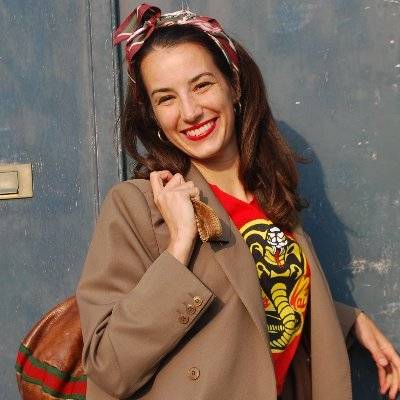How can non-violent research contribute to a solution for the issues linked to the migration phenomena? This is the question that Italy’s Love Sharing Festival will try to answer through art.
The festival is being organised by the politicised drama company Theandric Teatro Nonviolento, and will put contemporary art, scientific research and social and political innovation in conversation with each other. The idea is to engage in a dialogue between social and political institutions and residents and citizens. The festival aims to challenge the Italian public’s views on migration and engage in debates to imagine a more sustainable future. This will be the fourth Love Sharing Festival, and this year the focus is going to be a timely topic for the people of Italy, namely Migrations.
“I believe that in ordinary people there is a strong desire to find a human solution to the tragedies produced by migrations, despite the ‘political’ exploitation which plays on people’s fears,” explains Maria Virginia Siriu, the organiser of the festival and founder of Theandric Teatro Nonviolento. “I feel that people in Italy and in Sardinia have the need and urgency to get out of their shell and actually engage with each other.”
READ: Exhibition in Art and Craft Village
In previous years, the festival welcomed a variety of proposals with different content but one focus; the promotion of non-violence. These included a show against violence on women called: “Marcella or the killing of the soul”; “Let’s remain human”, a show on the Palestinian situation; the reportage theatre show “The lottery of the dream” on the life of the actors in countries at war; and “Cinderella”, the story of a poor boy fleeing from the war who takes refuge in a witch’s stable.
Since its second year, the festival has activated an open call to the various artistic disciplines and scholars across different nations, becoming a monitor for artistic fermentation around the non-violence theme.
Theandric Teatro Nonviolento emphasises the social role of theatre as a tool which can elicit deep critiques and reflection. Where, I asked Siriu, does this need to spread non-violence through art come from?
“My need to live non-violently and to transmit this way of living to others stems from what I have acknowledged to be the revolutionary essence of non-violence,” she told me. “I see it as revolutionary because it is able to bring us from an existing paradigm to a new one. It helps to solve problems and explain otherwise obscure phenomena, creating fewer contradictions.” A fundamental role of the non-violent tradition is to break down conceptual distinctions used as barriers to connote a reality that otherwise would not exist, she pointed out. “I will give a simple example: Ghandi used to say, ‘Means are not only means, they are everything,’ or ‘means and ends coincide’.”
READ: In London, theatre is helping four young refugees process trauma
From the non-violent point of view, explained Siriu, the rejection of violence is radical; taking away the life of a person is unacceptable; there is no distinction between the use of a bomb by the government, stabbing a thief who breaks into our home; or a death sentence inflicted on a serial killer or a dead man at sea. “Non-violence is disarming. Art and theatre, through an empathic language, question our ‘common sense’ and beliefs. The festival is a safe place where the public, the artists and the scholars, can at least suspend their convictions temporarily and welcome new aesthetics and concepts.”
Migration is obviously a very timely theme, especially relating to the dire news coming from Italy in terms of its new closed-door policy towards migrants. What approach, I asked, will the festival bring to the table relating to the issue?
“The deaths at sea are an example of the result of different forms of violence, including structural violence in the international system. Partial answers don’t work; we need to face the problem in its complexity in order to understand it. In the migration theme of the festival, ‘land grabbing’ will be at the centre of the debate and will give voice to those involved in this tragedy, in their different roles. From Emergency with the show ‘Viaggio Italiano’, to African artists, with a particular attention to the condition of migrant women.”
Siriu’s personal perspective relating to the migration issue is that not only ports but also airports should be open, with a policy of managing the broader migration flows in the short, medium and long term. “The phenomenon of migration can not be stopped or repressed, but it can be regulated. I do not believe in simple answers or ready-to-use formulas; I’m starting off from the assumption that the festival aims to offer a moment of authentic dialogue, in which the participants can express their doubts and, above all, not feeling labelled in this or that faction.”Why is it important to generate and sustain utopian ideas in contemporary society? Siriu believes that the concept of utopia is innate to human beings. “Everyone in their life is committed from birth to realise their uniqueness with what is given to them. Creativity leads the individual to produce the new. In this sense utopia is nothing but an anticipation of what we would like to be, the definition of the possible, both on an individual and collective level. Utopia is part of the evolution of life on earth.”
The Love Sharing Festival 2018 opens in October in Cagliari, Sardinia, Italy.



![Arts festival challenges Italy’s policies on migration2017_Mostra arti visive 2 Arts festival challenges Italy’s policies on migration [Naima Morelli]](https://i0.wp.com/www.middleeastmonitor.com/wp-content/uploads/2018/07/Arts-festival-challenges-Italy’s-policies-on-migration2017_Mostra-arti-visive-2.jpg?w=797&h=531&ssl=1)
![Arts festival challenges Italy’s policies on migration2017_Relatrici incontro Nonviolenza femminile plurale Arts festival challenges Italy’s policies on migration [Naima Morelli]](https://i0.wp.com/www.middleeastmonitor.com/wp-content/uploads/2018/07/Arts-festival-challenges-Italy’s-policies-on-migration2017_Relatrici-incontro-Nonviolenza-femminile-plurale.jpg?w=395&h=264&ssl=1)
![Arts festival challenges Italy’s policies on migration2017_HUMOR_Y_VIDA_Nacer Arts festival challenges Italy’s policies on migration [Naima Morelli]](https://i0.wp.com/www.middleeastmonitor.com/wp-content/uploads/2018/07/Arts-festival-challenges-Italy’s-policies-on-migration2017_HUMOR_Y_VIDA_Nacer.jpg?w=395&h=263&ssl=1)

![Arts festival challenges Italy’s policies on migration [Naima Morelli]](https://i0.wp.com/www.middleeastmonitor.com/wp-content/uploads/2018/07/2016_MONI_OVADIA_Pace-e-nonviolenza-1.jpg?resize=222%2C333&ssl=1)








